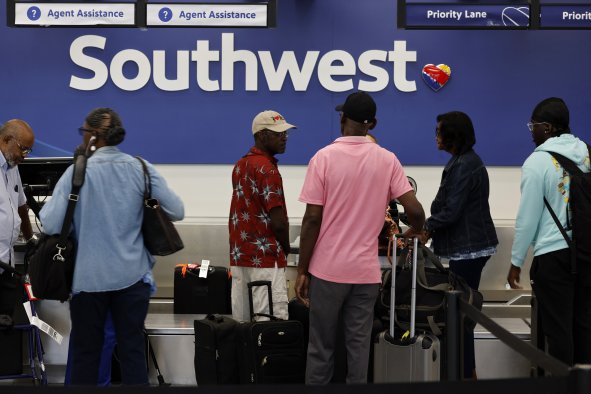Loneliness may increase our risk of age-related memory loss.
In 2023, the WHO declared loneliness to be a "global public health concern," affecting an estimated 1 in 4 older adults. Previous research has shown that social isolation and loneliness can seriously impact our mental and physical health, with several studies finding that they may be linked to an increased risk of cardiovascular disease, hypertension, diabetes, disease susceptibility, depression and anxiety.
Loneliness has also been linked to declines in cognitive function in older adults. Now, new research from the University of Waterloo in Canada has found that both social isolation and loneliness can negatively impact our memory.
The study, published in the journal Archives of Gerontology and Geriatrics, examined different combinations of social isolation and loneliness in middle-aged and older adults over a six-year period to investigate their effects on memory.
Social isolation and loneliness are not the same thing, but they often come hand in hand. Social isolation is an objective measure of the number of social contacts an individual has. Loneliness, meanwhile, is a subjective emotion defined by feeling alone and isolated. It is not necessarily about actually being alone, and many people feel lonely despite engaging in social activities.
"They may be connected socially and have close relationships, but for example, maybe their marriage is falling apart and they would benefit from counseling," Ji Won Kang, lead author on the paper and a PhD candidate in the School of Public Health Sciences at Waterloo, said in a statement.
The study included four combinations of loneliness and social isolation: being socially isolated and lonely; being socially isolated or lonely; and being neither socially isolated nor lonely.
"As we expected, people who were both socially isolated and lonely had the greatest decline in memory, which intensified over the six years," Kang said. "But we were surprised to find that loneliness alone had the second-greatest impact on memory, even though so many studies report on the dangers of social isolation without considering loneliness."
The researchers suggested that those who are socially isolated but not lonely may still be stimulating their mental capacity with solo activities, such as reading, puzzles and engaging in hobbies.
The reasons for these associations aren't entirely clear, but the team have highlighted several potential mechanisms, including the so-called "use it or lose it" theory: "The 'use it or lose it' theory suggests reduced interactions with social networks can contribute to memory loss because engagement in the physical, mental, and social activities essential for stimulating mental faculties declines," the researchers wrote.
Psychological stress from loneliness may also lead to hormonal imbalances that can potentially damage the connections between our brain cells.
Kang hopes that the findings will highlight the need for community programs for those who are at the highest risk of memory impairments. "Older adults in the lonely category often have lower incomes than the other groups and may have structural barriers and health conditions preventing them from connecting to their communities," she said.
"A solution could be to implement transportation or home-visit programs—something to address the societal issues that lead to them being more isolated."
Is there a health issue that's worrying you? Let us know via health@newsweek.com. We can ask experts for advice, and your story could be featured on Newsweek.
Disclaimer: The copyright of this article belongs to the original author. Reposting this article is solely for the purpose of information dissemination and does not constitute any investment advice. If there is any infringement, please contact us immediately. We will make corrections or deletions as necessary. Thank you.



